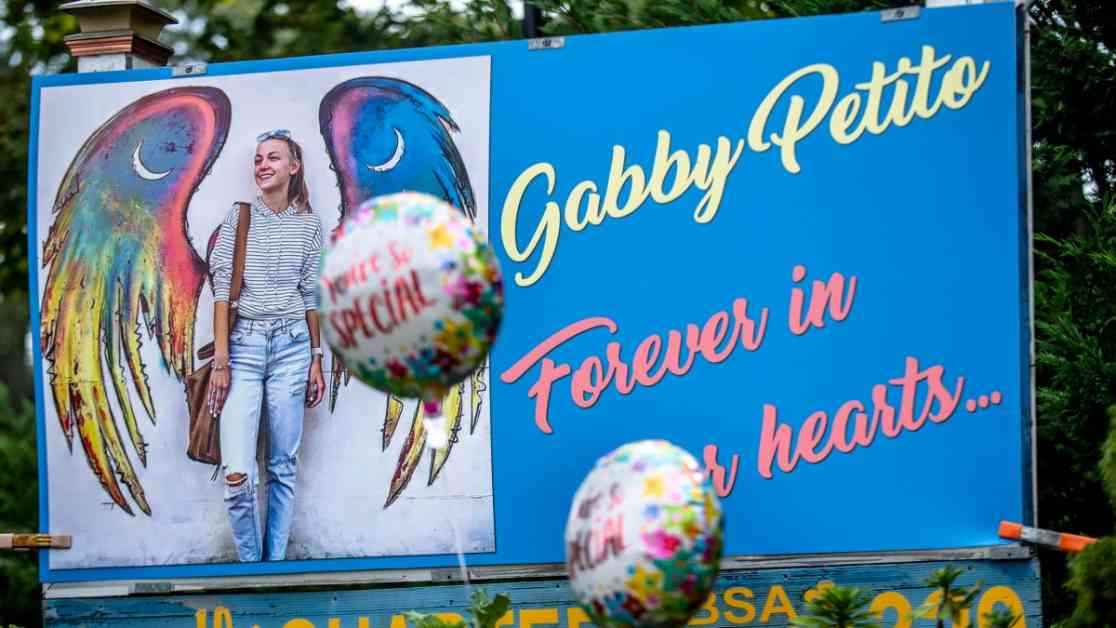Controversy Surrounds Netflix Documentary Over AI Voice Recreation
The Netflix docuseries “American Murder: Gabby Petito” has sparked significant controversy among viewers for its use of artificial intelligence to recreate Gabby Petito’s voice. Many are questioning the ethical implications of this creative decision, as reported by NBC News.
In September 2021, the nation was captivated by the tragic story of Gabby Petito, a 22-year-old whose disappearance and subsequent death made headlines. Petito had been on a cross-country road trip with her fiancé, Brian Laundrie, documenting their adventures on social media. Laundrie, who was considered a “person of interest” in the case, tragically took his own life, leaving authorities and the public with many unanswered questions.
The recently released three-part series on Netflix delves into Petito’s story, featuring interviews with her loved ones, along with photographs, videos, maps, and excerpts from her writing. However, what has drawn the most attention is the use of voice recreation technology to bring Petito’s journal entries and text messages to life in what was described as “her own voice.”
While the filmmakers, Julia Willoughby Nason and Michael Gasparro, shared that Petito’s family had approved of this creative choice, viewers online have expressed their discomfort and criticism. Some have described the use of AI to recreate Petito’s voice as “unsettling,” “deeply uncomfortable,” and “wholly unnecessary.”
Debates Over AI Voice Recreation in Documentaries
This is not the first time that AI voice recreation has stirred controversy in the documentary world. In 2021, the film “Roadrunner: A Film About Anthony Bourdain” faced similar backlash for using AI to bring Bourdain’s written notes to life. Director Morgan Neville’s decision to employ AI technology to replicate Bourdain’s voice sparked debates among fans and critics alike.
Gasparro defended the use of voice recreation in “American Murder: Gabby Petito” by highlighting the abundance of material provided by Petito’s parents, such as journals and other written documents. He emphasized the importance of telling Petito’s story through her own words, capturing her essence and experiences as authentically as possible.
Merve Hickok, an expert on AI ethics, acknowledged that the general use of voice cloning is not inherently unethical. However, she cautioned against crossing boundaries when it comes to personal and confidential content of deceased individuals. Hickok emphasized the importance of respecting the privacy and autonomy of individuals, even after their passing.
Family Reactions and Ethical Considerations
Despite giving their approval for the voice recreation in the documentary, some of Petito’s family members have expressed mixed feelings about the creative choice. Petito’s mother, Nichole Schmidt, described the experience of hearing the recreated voice as “weird” and slightly off, highlighting the emotional impact of this decision.
Hickok, reflecting on the potential benefits of voice cloning for remembrance purposes, urged filmmakers to consider the negative implications and risks associated with this technology. She emphasized the need for regulations and ethical guidelines to govern the use of AI in sensitive contexts, such as recreating the voices of deceased individuals.
In conclusion, the debate surrounding the use of AI voice recreation in documentaries like “American Murder: Gabby Petito” raises complex ethical questions about privacy, consent, and respect for the deceased. While technology offers new opportunities for storytelling, it also necessitates careful consideration of its implications and consequences on a human level. As audiences grapple with these ethical dilemmas, the film industry faces a critical juncture in balancing innovation with ethical responsibility.


